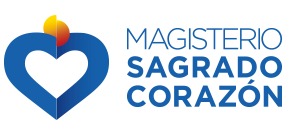Degree in Early Childhood Education
Description - Objectives
The programme of studies described here has as its aim to provide practical training that encompasses the professional, cultural and social aspects of educational practice, including a number of dimensions that are reflected in the competencies to be acquired by students pursuing the degree. Strong emphasis is placed on observation and educational practice in the field with a view to establishing a close relationship between learning to know and learning to do.
The ultimate objective of the programme is to train professionals in managing and handling complex situations, preparing them to act and react appropriately by combining and using resources in a given context, knowing how to understand, transfer and know learning to learn.
The programme of studies pursues the following objectives:
- Understand that education is an instrument for social change and a lifelong process to achieve the harmonious and integral development of people.
- Value participatory democracy as an ideal society to which we are committed.
- Understand that schools must respond to the new challenges of the information and communication society.
- Train education professionals characterised, among others, by the following features: reflection, autonomy and accountability, ethical and social commitment, a willingness to change, commitment to teamwork and mastery of the skills needed to perform these functions.
Professionalism is understood here as the ability to provide a quality public service open to democratic control, including decision making and the implementation of contextualised plans that are constantly revised and improved in collaboration with others.
To guide the training of future education professionals, we are committed to:
- Providing the opportunity for all students to reach their fullest potential.
- Preparing students to seek, assimilate and use information rather than reproduce it, by giving priority to the development of independent learning skills and the proper use of the resources that society offers.
- Ensuring the development of skills and attitudes required to engage in a positive relationship with oneself and with individuals, groups and institutions in the community and the society to which they will belong.
We fully endorse the guidelines contained in the following paragraph of Royal Decree 1397/2007, which establishes the organisation of official university programmes of study:
“The training in any professional activity should contribute to the knowledge and development of human rights, democratic principles, the principles of equality between women and men, solidarity, environmental protection, universal accessibility and design for all, and promoting the culture of peace”.
The teachings presented here serve to achieve specific purposes based on the following principles:
- Respect for and promotion of fundamental rights and equality between men and women
- Equal opportunities
- Non-discrimination of people with disabilities
- The culture of peace and democratic values

